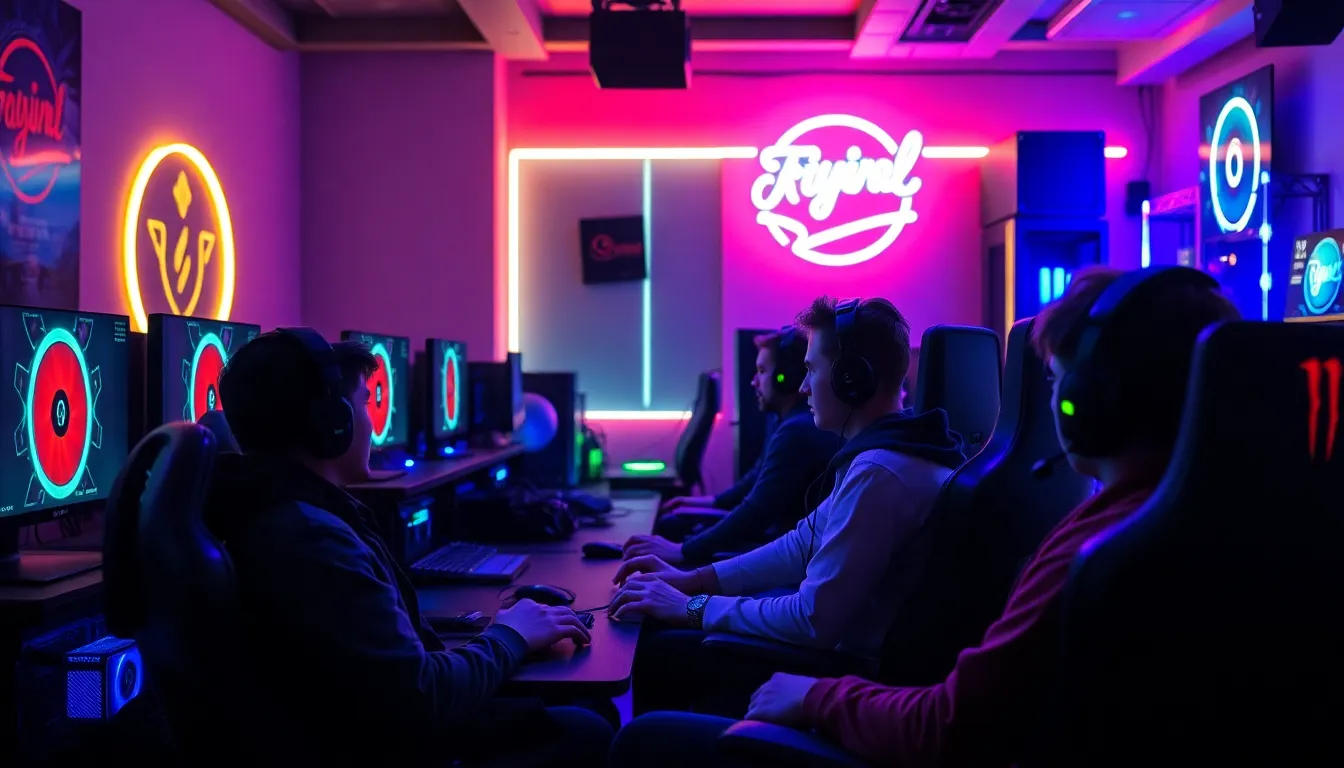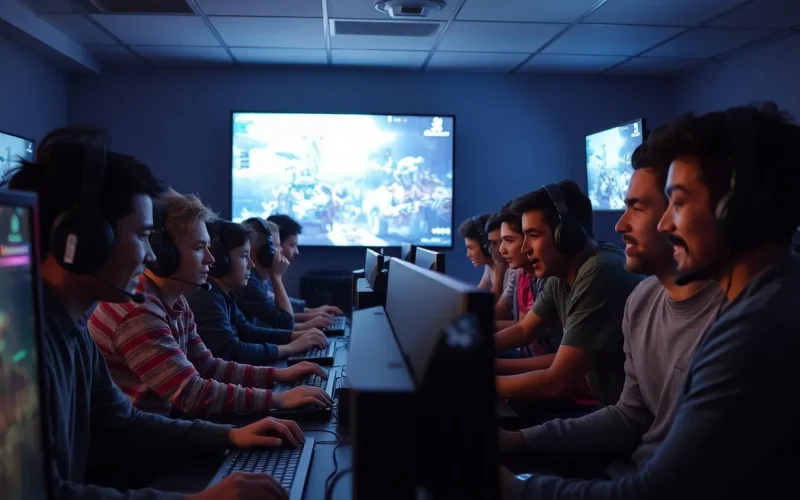Table of Contents
ToggleIn the fast-paced world of first-person shooters, latency can be the difference between a glorious headshot and an embarrassing faceplant. Enter FPS servers—the unsung heroes of online gaming. These digital battlegrounds ensure players connect smoothly, dodging lag like it’s a grenade.
Imagine teaming up with friends, only to experience a game where your bullets actually hit their target. Sounds like a dream, right? With the right FPS server, that dream becomes a reality. Not only do they enhance gameplay, but they also create communities where gamers can strategize, laugh, and share their epic fails. So, whether you’re a seasoned sniper or a rookie in need of some serious practice, understanding FPS servers is your ticket to leveling up your gaming experience.
What Are FPS Servers?
FPS servers are dedicated servers that provide a platform for first-person shooter games. They handle game data, facilitating real-time interactions among players. These servers ensure low latency, which is crucial for accurate shooting and seamless gameplay.
Players connect to FPS servers to engage with others in a competitive environment. Various types exist, such as public servers, which are open to anyone, and private servers, which require invitations or passwords. Each type serves different gaming communities, promoting unique experiences based on player preferences.
High-quality FPS servers significantly impact the gaming experience. They minimize lag, allowing players to respond quickly to in-game events. With optimized performance, players can maintain smooth gameplay, enhancing their ability to strategize and execute complex moves.
Community building benefits from FPS servers. Gamers often bond over shared experiences in these online environments. Players can form clans or squads, fostering collaboration and competition. Such interactions contribute to skill improvement, as experienced players mentor newcomers.
Server locations play a role in performance. Regional servers reduce the distance data travels, further lowering latency. Players should select servers closest to them for optimal connection quality.
Overall, FPS servers serve as the backbone of the first-person shooter gaming experience. They provide the infrastructure necessary for exciting gameplay, community interaction, and skills development. Gamers rely on these servers to ensure their sessions are engaging and efficient.
Types of FPS Servers


FPS servers come in different types, each offering unique advantages for gamers based on their needs and preferences. Understanding these types helps players choose the most suitable setup for their gameplay.
Dedicated Servers
Dedicated servers provide a stable environment for multiple players. Hosting companies maintain these servers, ensuring optimal performance and security. Players usually experience lower latency since these servers handle only specific games, minimizing the chances of network congestion. Many dedicated servers support extensive customization options, allowing administrators to tweak settings for balanced gameplay. Players often enjoy a more consistent connection, as dedicated servers operate 24/7, creating reliable spaces for competitive matches. Popular FPS games, such as Call of Duty and Battlefield, often utilize dedicated servers to enhance user experiences and maintain server integrity.
Peer-to-Peer Servers
Peer-to-peer servers rely on direct connections between players without centralized hosting. Each participant’s computer acts as a server, sharing gameplay data with others involved in the match. This setup can lead to variable connection quality, as the host’s bandwidth impacts the entire gaming experience. While peer-to-peer servers can be quick to set up and require less maintenance, latency issues may arise, causing frustrating lag during competitive play. Certain games, like Halo and Fortnite, utilize peer-to-peer connections to facilitate seamless multiplayer experiences. Gamers must consider the pros and cons of this setup, balancing convenience with potential performance challenges.
Key Features of FPS Servers
Key features of FPS servers greatly influence gameplay quality. Players benefit from various technical attributes designed to optimize their experience.
Low Latency
Low latency serves as a crucial aspect of FPS servers. Reduced latency ensures quicker response times, enabling immediate reactions to in-game actions. Aiming becomes more accurate and kills more frequent when latencies are minimal. Players connected to servers with low latency can enjoy seamless interactions, allowing for fluid gameplay. Server locations contribute significantly; regional servers decrease the distance data travels, leading to improved performance. The ideal latency typically ranges under 30 milliseconds for FPS games, ensuring competitive play remains intense and engaging.
High Bandwidth
High bandwidth is another essential characteristic of FPS servers. Increased bandwidth allows for smoother game performance, accommodating multiple players without lag. When servers support substantial data throughput, players experience fewer disruptions during intense firefights. Sufficient bandwidth ensures data-intensive elements, such as graphics and sound, load efficiently, enhancing overall immersion. Stable bandwidth levels, ideally above 10 Mbps per player, contribute to a more enjoyable experience. Players benefit from fewer dropped connections, allowing them to maintain competitive advantages during matches.
Popular FPS Servers on the Market
Many FPS servers stand out in the gaming community due to their reliability and features. Players frequently search for the best options to enhance their gaming experience.
Server Providers
Top server providers deliver tailored solutions for first-person shooter games. Companies like GameServers.com, Nitrado, and Host Havoc offer low-latency options backed by excellent customer support. Performance levels depend on server locations, which affect gameplay quality. Nitrado excels in customization options, allowing players to adjust settings for a personalized experience. GameServers.com stands out by providing high uptime and robust DDoS protection. Players can explore various pricing plans that cater to different budgets and needs.
Game-Specific Servers
Game-specific servers cater to unique titles and communities. For instance, Counter-Strike: Global Offensive servers focus on competitive match-making, while Call of Duty servers enhance team-based gameplay. Each title has dedicated communities that thrive on these specialized servers. Battlefield 2042’s servers attract players looking for large-scale battles with destructible environments. Server configurations differ based on gameplay mechanics; some feature modified rules to create custom experiences. Within each FPS genre, these game-specific servers foster deeper connections among players, making them vital for engaging gameplay.





